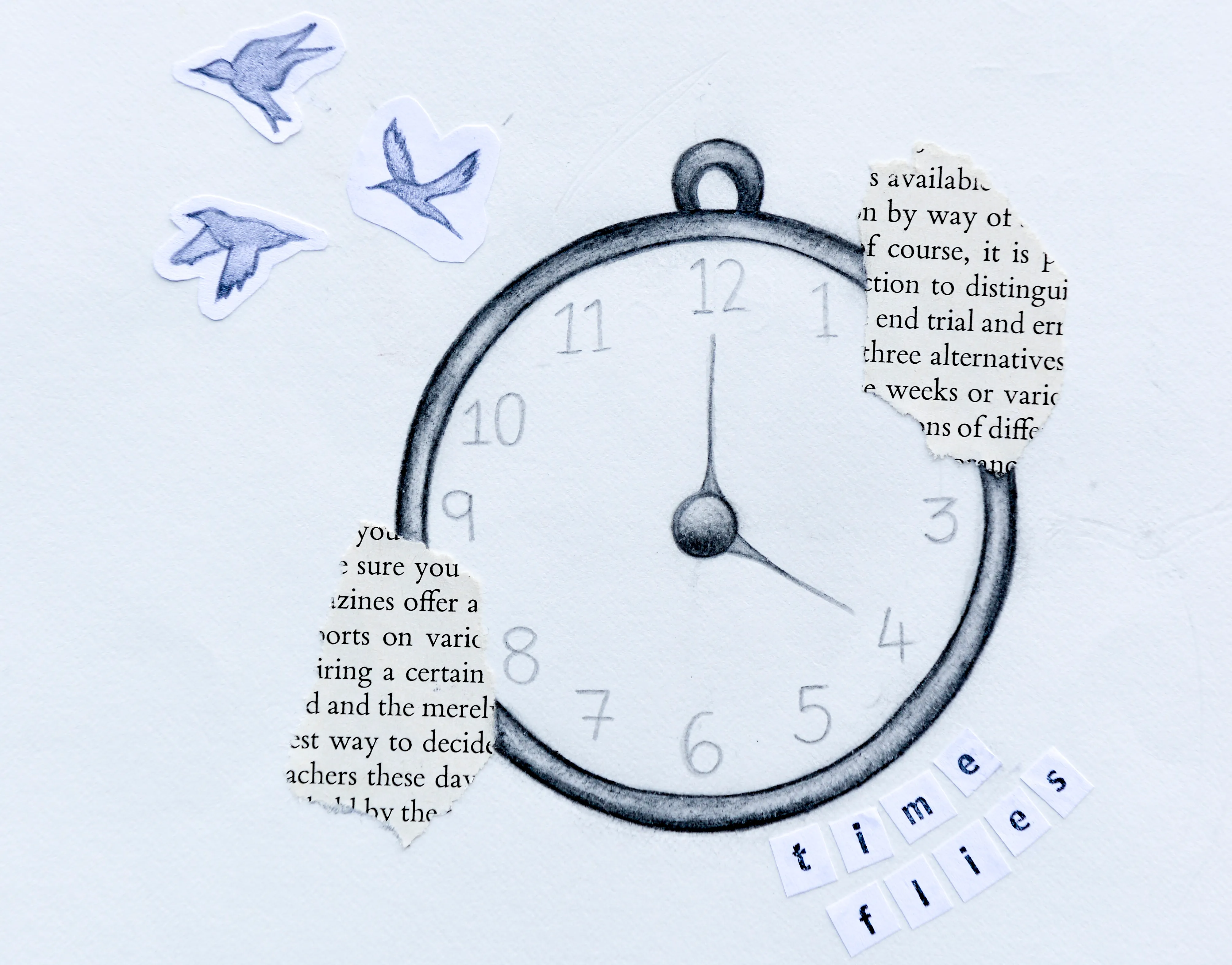
Beyond the Clock
Nina Ribeaux, S10, tells us how important it is that we embrace the passing of time in our quest to unlock freedom.
Nina Ribeaux
Senior 10
Artwork by Lily Rinaldi
Senior 11
The concept of freedom is theoretically very simple – the ability and right to speak, think and act without oppression or restraint. In the Oxford Dictionary freedom is defined as ‘the state of being able to act without hindrance’. But there is one aspect of life we are never truly free from - time. So, can we break the never-ending chains? Or will society be stuck in a schedule forever?
We may not even realise how bound to time we have become. Society revolves around calendars, clocks and appointments. Timetables, meetings and deadlines have become the norm. Even in writing this article I have a deadline. Since our lifetime is finite, shouldn’t we use every bit we have to make our life memorable? But how is that possible when society’s expectations are to finish that essay or get on the plane on time. Even when we are ‘relaxing’, we are not totally free from the clock constraints.
Have you ever caught yourself looking at a clock during the lesson thinking, how has it only been five minutes, but lunchtime goes so quickly? Einstein explored the relativity of time, and how the rate that it passes depends on your reference point. So, time itself is experienced uniquely by each different person (and creature), depending on many different factors. In Buddhism, the practice of Kalachakra is used to ‘become the Buddha’ and achieve a state of Bodhicitta (mind of enlightenment) and Sunyata (emptiness). The film ‘Inception’ focuses on the experience of time within dreams, blurring the lines between reality and subconscious perception. But what does a religious practice have to do with a clearly fictional movie? Both experiment with the idea of time as a non-fixed state. So, some spiritual phenomena, or even dreams, can lead to a sense of time being stopped, or transcended – meaning that while the body may be controlled by time, the human mind can be free from its chains.
There are many ways to interpret ‘being free from time’. Our mind often gets caught up in the past or focuses too much on the future. So, while freedom can be achieved through law or rights, no one can ever truly be mentally free. The yolo mindset – you only live once focuses on living purely in the moment. Through this, some level of freedom can be felt, however in the modern world, it would be impractical to disregard the future. The ‘flow’ state can occur when a person is completely immersed in an activity and loses the perception of time. However, ‘Time’ will always impact the actions and thoughts you have. So, in trying to escape Time’s bounds, does it actually make us more susceptible to its control? Trying to be free of something that is impossible seems futile. Perhaps it is better to accept the march of time and slow down, be creative, or ‘carve out’ time to relax, to enable us to feel brief moments of freedom.
Ultimately, we can never be physically free from time. While freedom comes in all sorts of forms, time continues to undermine the definition. However, with a shift in perspective rather than a frantic attempt to escape, time dwindles down to nothing more than an everlasting companion, rather than a source of stress and control.